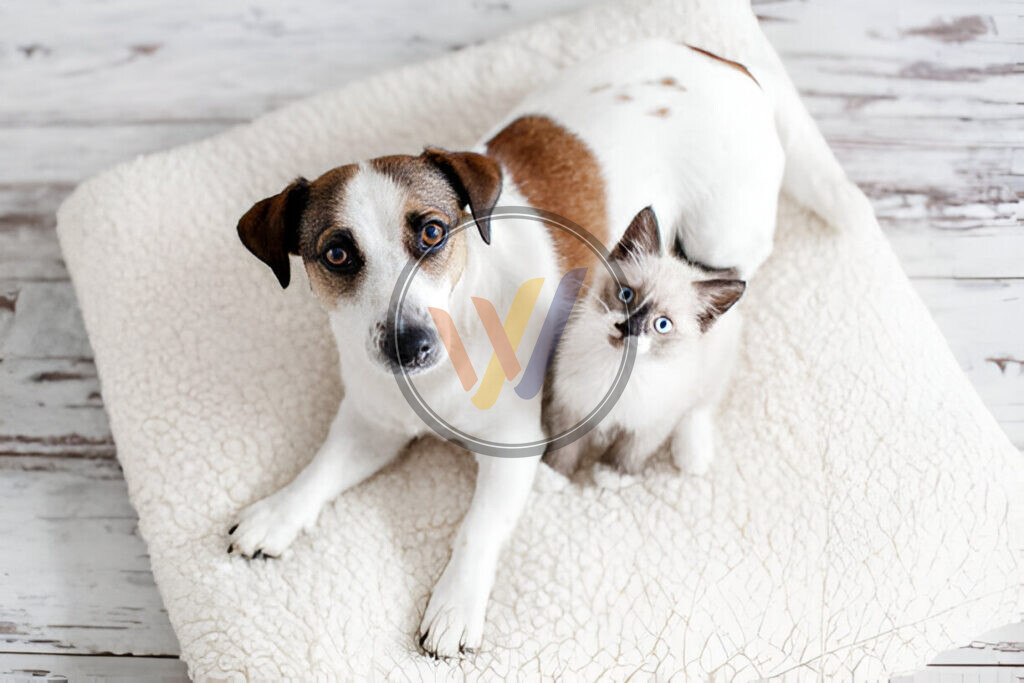BLOG
How Pet Owners Can Handle Destructive Chewing
How Pet Owners Can Handle Destructive Chewing: Positive Discipline and Creating a Safe Environment
One of the most common challenges faced by pet owners is destructive chewing. This could include dogs and cats biting shoes, damaging furniture, or even gnawing on expensive electronics. However, instead of reacting negatively, there are effective ways to handle this issue with a gentle yet impactful approach. Below are two key methods that pet owners can apply to help their pets grow properly and avoid undesirable behaviors: positive discipline and creating a safe environment.
Understanding and Addressing Destructive Chewing Behaviors in Pets
One of the most common challenges faced by pet owners is destructive chewing. This could include dogs and cats biting shoes, damaging furniture, or even gnawing on expensive electronics. However, instead of reacting negatively, there are effective ways to handle this issue with a gentle yet impactful approach. Below are two key methods that pet owners can apply to help their pets grow properly and avoid undesirable behaviors: positive discipline and creating a safe environment.
Positive Discipline
Positive discipline is based on using reinforcement instead of punishment. This helps build a strong, trusting relationship between you and your pet.
- Reward correct behavior: When your pet behaves well, such as not chewing destructively or following simple commands, immediately reward them. Rewards can be a small treat, a gentle pat, or even a sweet verbal compliment. Associating good behavior with rewards helps your pet quickly understand that they need to act properly to receive these rewards.
- Use body language and voice: To prevent unwanted behaviors, you don’t need to resort to violence or intimidation. Instead, use a firm and clear voice combined with appropriate body language to show that the behavior is unacceptable. For example, when your pet starts chewing on something they shouldn’t, you can say “No” in a firm tone and immediately redirect them to an appropriate activity.
- Patience and avoiding violence: The most crucial aspect of positive discipline is never using violence or harsh punishment. Actions such as hitting or excessive scolding will only harm your pet’s mental state, making them fearful and causing them to lose trust in you. Instead, remain patient and continue to educate your pet with gentle methods.
Creating a Safe Environment
A stimulating and safe environment is essential to help your pet avoid destructive chewing.
- Put away items prone to chewing: You should tidy up and put away items that are easy to damage, such as shoes, electrical cords, or other valuable objects. This reduces the chance that your pet will come into contact with things they might mistake for toys.
- Provide plenty of toys and entertainment: One of the main reasons pets chew destructively is boredom or a lack of mental stimulation. To address this, ensure your pet has enough toys appropriate for their size and age. Additionally, take time every day to play and interact with them, helping them expend energy and feel loved.
- Establish a private space: A designated space for your pet is vital. This provides them with a safe and quiet area to rest when they feel overwhelmed or need to retreat from external stimuli.
Additional Points to Consider
- Understanding Your Pet’s Needs: Each pet has unique needs that can influence their behavior. For instance, puppies are teething and naturally seek things to chew on, while cats may engage in destructive behavior due to stress or anxiety. Understanding the underlying reasons for the behavior will help you address it more effectively. If your pet’s chewing seems abnormal or excessively destructive, it’s worth consulting a veterinarian or a pet behaviorist to rule out any underlying health issues.
- Exercise and Mental Stimulation: Pets, especially dogs, require regular exercise to burn off energy. Without proper outlets for their energy, they may resort to destructive behavior. Incorporating daily walks, interactive games, and training sessions into their routine can significantly reduce boredom and anxiety. Similarly, mental stimulation through puzzle toys, treat-dispensing games, or even simple training exercises can keep your pet’s mind engaged and focused.
Conclusion
Handling destructive chewing in pets doesn’t have to be overly challenging if you know how to apply the right methods. Positive discipline helps build a healthy relationship between you and your pet, while creating a safe and stimulating environment reduces the likelihood of unwanted behaviors. Be patient, loving, and understanding of your pet’s needs, and they will thrive in a happy, secure home
WINVN INT CO., LTD
Natural joy made in Vietnam
☎️ +84 932 118 447
📧 info@winvnint.com
🌐 winvnint.com
🌐 https://winvnint.trustpass.alibaba.com/
📌 29, 29 Street, Van Phuc Residence, Thu Duc City, Ho Chi Minh City, Vietnam
 Tel: (+84) 932 118 447
Tel: (+84) 932 118 447  Email: info@winvnint.com
Email: info@winvnint.com 










